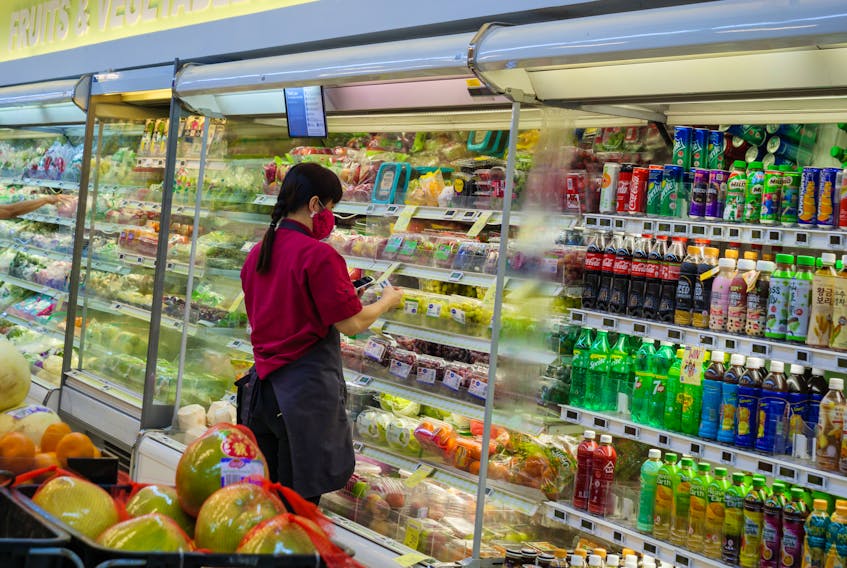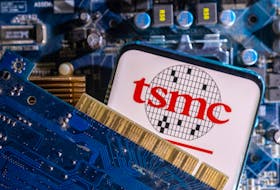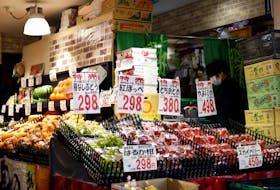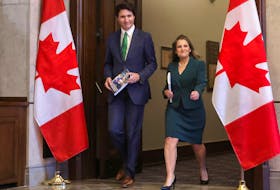Hero pay is quietly fading away in grocery stores and food distribution centres.
In fact, the American chain Kroger, among others, even asked employees to return extra money they received but has since backed off.
Quite the reversal from 10 weeks ago. It appears higher salaries in grocery stores were short-lived. It is not overly surprising, given the high-volume, low-margin nature of the business, but it will likely create a rift between employees and companies.
American retailers like Target, Walmart, Whole Foods, Costco, Sprouts and Kroger implemented hero pay early during the pandemic. In Canada, Sobeys, Quebec-based Metro, Vancouver-based Save-On Foods and Loblaws did the same thing.
Closer to home

Sobeys is paying an extra $50 for every employee and $2 an hour for staff working more than 20 hours a week. Loblaws is giving all its staff an additional $2 an hour.
Most of these programs, however, will likely end soon. Some grocers like Sobeys have announced that they plan to reassess at some point. Calgary Co-op announced it was eliminating its COVID-19 wage stipend for front-line employees on May 30. More than a dozen grocers in the United States have announced they will not be renewing their pledge to workers.
The idea of offering some sort of danger pay to front-line workers in the food industry is clearly losing steam. Chances are these stipends will not survive the summer, and perhaps not even the possible second COVID-19 wave.
The economics of pay increases at retail are always weak, especially in food. With such low margins, these stipends were offered simply to keep enough staff around and not have operations affected by higher absenteeism. It worked for a while, but COVID-19 fears are slowly fading and so is the need to incentivize employees to show up for work.
The COVID-19 fear factor is diminishing. The money will instead be spent on personal protective equipment.
Disappointing for employees but not surprising.
What hero pay means to employees, consumers

The average salary in a Canadian grocery store is less than $30,000, or $15 per hour. An employee would start at around $13. The highest-paid could earn almost $50,000 a year, tops.
Hero pay represents a 10-15 per cent increase. Given that the average grocery store in Canada would have about 80 full-time employees and that payroll represents roughly 30 per cent of operation costs, hero pay essentially made the average store almost unprofitable.
At the beginning of the pandemic, sales came out of nowhere so salaries were not an issue. Now, the numbers just do not make sense for the initiative to remain sustainable.
The only way to make it work, of course, is to increase food prices. Food inflation could push prices higher for a while, but there may not be enough room for higher wages.
Grocers also need to think about e-commerce as we maneuver through the COVID era. That will bring its own load of extra costs.
Essential service, low pay
COVID-19 made us realize that many whose jobs are too important to shut down are the ones making the least money. Many are public-facing jobs with higher risks of contracting diseases.
Mostly women, students, seniors and people who need a second job occupy these positions.
For the first time, grocery clerks and front-line workers in food distribution were considered heroes and were praised constantly. Higher wages over time would have redefined many of these roles and would have allowed grocers to attract a different crop of talent, not just those simply looking for a job.
Also, the idea of labelling it hero pay was never going to end well. As businesses get back to normal, grocers must get their expenses, including pay, back to normal as well.
But normal will not be the same coming out of COVID-19. The grocery landscape will probably change, with fewer stores and fewer offerings due to higher distribution costs.
Grocers could potentially afford to pay employees more to support a different business model. To support bold ambitions, hiring talent can only make sense, and that always comes at a cost.
Ending stipends in grocery stores may be a missed opportunity. Let’s hope this does not happen across the sector.
Sylvain Charlebois is professor in food distribution and policy, and senior director of the AgriFood Analytics Lab at Dalhousie University.









